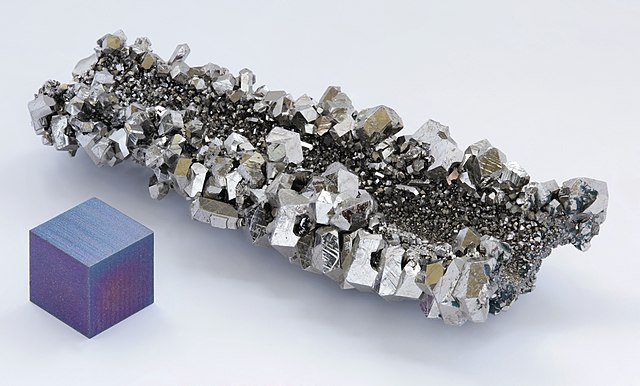Niobium comes in the form of a shiny grey metal. Its hue changes to blue when it is exposed to the air long enough. It shares with tantalum (the element below it in the Periodic Table of Elements) almost all of its chemical properties. Above 200°C, niobium oxidizes in the presence of air.
Niobium is an alloying agent that gives considerable properties to the materials to which it is added. For example, steel containing niobium resists corrosion and is stronger and lighter than pure steel. Niobium is found, among other things, in rockets and satellites sent into space.
It is also alloyed with zirconium,
molybdenum, vanadium, chromium or
tungsten.
Along with gold, niobium is the only metal that can be cold forged by craftsmen. Its coloring by anodizing is similar to that of other refractory metals such as
titanium.
Other applications:
Surface wave filters
Filler metal for arc welding
It is used for the storage of electricity in flux batteries. Some surgical steels contain vanadium. Vanadium blue contains this metal as a pigment. In compound form, it catalyzes the synthesis of sulfuric acid or maleic anhydride. Vanadium is also found in association with aluminum and
titanium in some jet engines.

